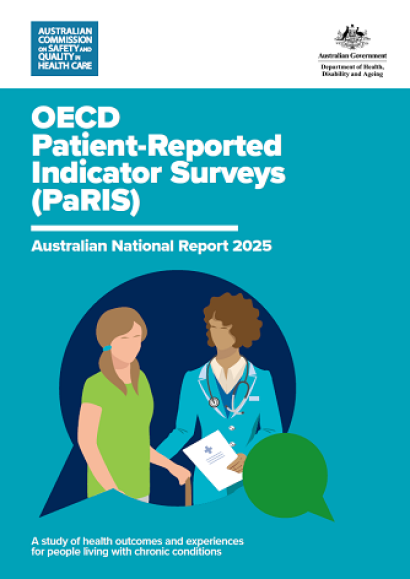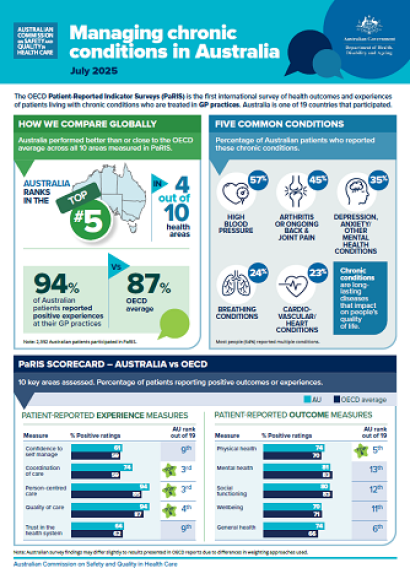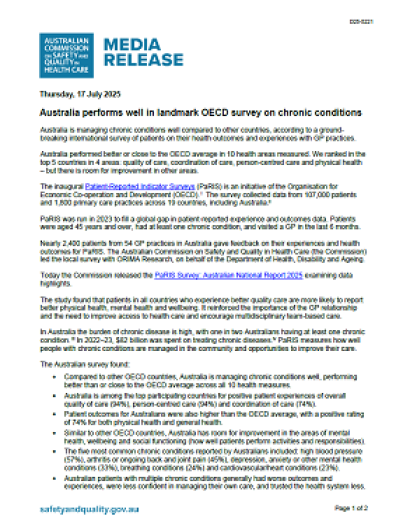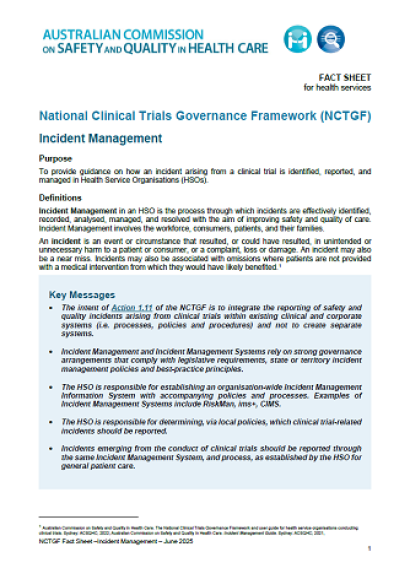Australia Capital Territory
- Canberra Health Services
- Canberra Hospital – Specialist Palliative Care Consult
- Clare Holland House
New South Wales
Nepean Blue Mountains Local Health District
- Nepean Hospital
- St John of God Health Care: Hawkesbury District Health Service
Northern Sydney Local Health District
- Royal North Shore Hospital
- Ryde Hospital
- Hornsby Hospital
- Mona Vale Hospital
- Northern Beaches Hospital
- Manly Adolescent and Young Adult Hospice
South Eastern Sydney Local Health District
- Calvary Health Care Kogarah
- Prince of Wales Hospital
South Western Sydney Local Health District
- Bowral and District Hospital
- Camden Hospital (Macarthur Palliative Care Services),
- Fairfield Hospital Palliative Care Consult
- Liverpool Hospital
Sydney Local Health District
- Canterbury Hospital
- Concord Hospital - Concord Centre for Palliative Care
- Royal Prince Alfred Hospital (RPA)
Western Sydney Local Health District
- Auburn Hospital Supportive and Palliative Care Service
- Blacktown Hospital
- Mt Druitt Hospital
- Western Sydney LHD Community Palliative Care
- Westmead Hospital
Central Coast Local Health District
- Gosford Hospital
- Wyong Hospital
Hunter New England Local Health District
- John Hunter Hospital
- Maitland Dungog Community Palliative Care Service
- Manning Rural Referral Hospital
- Tamworth Base Hospital
- Tamworth/Nundle Community Health Service
Mid North Coast Local Health District
- Bellinger River District Hospital
- Coffs Harbour Community Palliative Care Service
- Hastings Macleay Community Palliative Care Service
- Macksville Community Health Centre
- Wauchope District Memorial Hospital
Western NSW Local Health District
- Bathurst Health Service
- Cowra Health Service
- Dubbo Health Service
- Lachlan Health Service - Forbes Hospital
- Lachlan Health Service - Parkes Hospital
- Mudgee Health Service
- Orange Health Service
Far West Local Health District
- Broken Hill Health Service
- Buronga Specialist Palliative Care Service
Illawarra Shoalhaven Local Health District
- Bulli Hospital
- David Berry Hospital
- Illawarra Shoalhaven Community Specialist Palliative Care Service
- Shellharbour Hospital
- Shoalhaven District Memorial Hospital
- Wollongong Hospital
Murrumbidgee Local Health District
- Murrumbidgee LHD Palliative Care Service
Southern NSW Local Health District
- Arcadia Pittwater Private Hospital
- Baringa Private Hospital
- Calvary Health Care Riverina
- Calvary Mater Newcastle
- Central Coast Specialist Palliative Care Services
- Chris O'Brien Lifehouse
- Forster Private Hospital
- HammondCare - Braeside Hospital
- HammondCare - Greenwich Hospital
- HammondCare - Neringah Hospital
- HammondCare Community Palliative Care (Incl. Northern Beaches community palliative care),
- Lourdes Hospital
- Mater Hospital, North Sydney
- Mercy Care Centre Young
- Mercy Health Service Albury
- Northern Sydney Home Nursing Service
- Port Kembla Hospital
- RACF Outreach Community Team
- Ramsay Health Glengarry Palliative Care Unit/Service
- RPA Virtual (Sydney District Nursing - Concord, Canterbury, Croydon, Marrickville and Redfern)
- Silverchain Western Sydney
- Southern NSW LHD Community Specialist Palliative Care (Goulburn, Eurobodalla, Queanbeyan, Comma & Bega)
- St Joseph's Hospital
- St Vincent's Hospital Sydney/ Sacred Heart Palliative Care Service
- St Vincent's Private Hospital, Lismore
- Sydney Adventist Hospital
- Toronto Private Hospital (Aurora Health)
- Wolper Jewish Hospital
- Wynnum-Manly PCU
Northern Territory
- Alice Springs Community Hospice
- Central Australia Health Service
- Katherine Hospital
- Top End Palliative Care Service
Queensland
Cairns and Hinterland Hospital and Health Service (HHS)
- Cairns & Gordonvale Hospital
Central Queensland Hospital and Health Service (HHS)
- Rockhampton Base Hospital
- Gladstone Hospital
Darling Downs Hospital and Health Service (HHS)
- Toowoomba Hospice
- Toowoomba Hospital Palliative Care Service
Gold Coast Hospital and Health Service (HHS)
- Gold Coast Hospital
- Robina Hospital
Mackay Hospital and Health Service (HHS)
Metro North Hospital and Health Service (HHS)
- Royal Brisbane and Women's Hospital
- Prince Charles Hospital Chermside
- Caboolture Hospital
- Redcliffe Hospital Palliative Care Service
Metro South Hospital and Health Service (HHS)
- QEII Hospital
- Redland Community Team
- Metro South Community Palliative Care Service
Sunshine Coast Hospital and Health Service (HHS)
- Sunshine Coast & Cooloola Palliative Care
- Caloundra Hospital
Torres and Cape Hospital and Health Service (HHS)
Townsville Hospital and Health Service (HHS)
- Townsville Hospital
- Townsville Palliative Care Centre
West Moreton Hospital and Health Service (HHS)
- Ipswich Hospice
- Ipswich Hospital
- Ipswich Nursing Service
Wide Bay Hospital and Health Service (HHS)
- Bundaberg Palliative Care
- Hervey Bay & Fraser Coast
- Maryborough Hospital
- Blue Care
- Canossa Private Hospital
- Cittamani Hospice Service
- Corinda South Brisbane Community Team
- Fraser Coast Hospice
- Hopewell Hospice
- Hospital in Your home
- Karuna Hospice
- Katie Rose Cottage Hospice
- Little Haven Palliative Care Inc
- Mater Private Brisbane
- Mater Private Mackay
- Mt Isa & Surrounds Palliative Care
- PARAS inpatients Bundaberg Hospital
- Silverchain Queensland
- St Vincent's Private Hospital Toowoomba
- St Vincent’s Hospital Brisbane
- The Mater Hospital
- Wesley Private
South Australia
Barossa Hills Fleurieu Local Health Network (LHN)
- South Coast Palliative Care Service
- Inner North Palliative Care
- Adelaide Hills Community Health Service,
Eyre and Far North Local Health Network (LHN)
- Port Lincoln Palliative Care Service
Flinders and Upper North Local Health Network (LHN)
- Port Augusta Palliative Care Service
- Whyalla Palliative Care Service
Limestone Coast Local Health Network (LHN)
- Limestone Coast LHN Specialist Palliative Care Service
Riverland Mallee Coorong Local Health Network (LHN)
- Riverland Palliative Care Service
Southern Adelaide Local Health Network (LHN)
- Southern Adelaide Palliative Services
Yorke and Northern Local Health Network (LHN)
- Lower North Palliative Care Service
- Port Pirie Regional Health Service
- Yorke Peninsula Palliative Care
- Calvary Community Care SA
- Calvary Health Care Adelaide (Mary Potter Hospice)
- Central Adelaide Palliative Service
- Enabling confidence at home community health service
- Northern Adelaide Palliative Service
- Royal District Nursing Service - South Australia
- Stirling District Hospital
Tasmania
- Calvary Health Care - St Luke's Launceston
- Calvary Health Care Tasmania - St John's
- Mersey Community Hospital
- Palliative Care Service South Tasmania
- Tasmania Community North
- Tasmania Community North West
Victoria
- Anam Cara Geelong
- Anam Cara House Colac
- Austin Health Palliative care
- Bacchus Marsh Community Palliative Care,
- Ballarat Hospice Care
- Banksia Palliative Care
- Barwon Health Palliative care Services
- Bellarine Community Health
- Benalla Home Nursing Service
- Bendigo Health Integrated PCS
- Cabrini Consult team
- Cabrini Health
- Calvary Bethlehem
- Caritas Christi Kew
- Colac Area Health - Community Palliative Care
- East Grampians Health Service
- Eastern Health Angliss
- Eastern Health Box Hill
- Eastern Health Consult Team
- Eastern Health Maroondah
- Eastern Health Palliative care Wantirna
- Eastern Health Palliative Residential Aged Care Consult service (PRACCS)
- Eastern Palliative Care
- Echuca Regional Health
- Fitzroy Hospice
- Gandarra Palliative Care
- Goulburn Valley Health
- Goulburn Valley Hospice Inc.
- Grampians Community Health Horsham
- Kyabram District Health Service
- Latrobe Regional Hospital
- Logan Community Team
- Lower Hume Palliative care service Community
- McCulloch House Supportive and Palliative Care Monash Health
- Melbourne City Mission Palliative Care
- Mercy Palliative Care Sunshine
- Moira Palliative Care Service
- Murray Mallee
- Northeast Health Wangaratta Palliative Care
- Northern Health Broadmeadows - McKenna House Palliative Care
- Northern Health Palliative Care Consult Team
- Palliative Aged Care Supportive Service (PACS)
- Palliative Ambulatory Care Consult Team - Eastern Health
- Palliative Care South East
- Peninsula Home Hospice
- Peter MacCallum Cancer Centre
- Peter MacCallum Cancer Centre Inpatient Unit
- Portland District Health - Community Palliative Care
- Royal Melbourne Hospital (Outlier data)
- Royal Melbourne Hospital Consult
- Royal Melbourne Hospital Palliative Care Unit
- South East Private Hospital
- South Metropolitan Area Palliative Consultancy
- South West Healthcare
- South West Hospital and Health Service
- St John of God- Berwick Hospital
- St John of God-Ballarat Hospital
- St John of God-Bendigo Hospital
- St John of God-Frankston
- St John of God Geelong
- St Vincent's Hospital Fitzroy
- St Vincent's Hospital Fitzroy Palliative Care Consult
- Sunraysia Community Health Service
- Sunshine Hospital Palliative Care Unit
- Swan Hill Palliative Care Service
- Tattersalls Peninsula Palliative Care
- The Alfred Hospital
- The Northern Hospital
- Werribee Mercy Hospital (Gabrielle Jenning Centre)
- Werribee Mercy Hospital PC Consult
- West Gippsland Community Palliative Care Service
- Western District Health Service
- Western Health – Community
- Wodonga Health Palliative Care Community Service
Western Australia
- Albany Community Hospice,
- Bethesda Hospital Palliative Care Unit
- Bunbury Community
- Fiona Stanley Hospital Consult Service (including Fremantle Hospital),
- Geraldton Community (Midwest Regional)
- Kalamunda Districts Hospital/Armadale Hospital
- Metropolitan Palliative Care Consultancy Service (MPaCCS)
- Northam Palliative Care
- Ramsay Health Joondalup Palliative Care Service
- Ramsay Health Peel Palliative Care Service
- Rockingham General Hospital Specialist Palliative Care Consult Service
- Royal Perth Hospital Specialist Palliative Care Consult Service/inc. Bentley Hospital
- Silver Chain Community Specialist Palliative Care Service
- Silver Chain Hospice Care Service WA
- St John of God - Murdoch Community Hospice
- St John of God Bunbury
- St John of God Geraldton
- St John of God Joondalup
- St John of God Midland
- WACHS - Goldfields Regional Palliative Care Service
- WACHS - Great Southern Regional Palliative Care Service
- WACHS - Kimberley Regional Palliative Care Service
- WACHS - Midwest Regional Palliative Care Service
- WACHS - PalCATS - Palliative Care Telehealth Service
- WACHS - Pilbara Regional Palliative Care Service
- WACHS - South West Regional Palliative Care Service
- WACHS - Wheatbelt Regional Palliative Care Service




